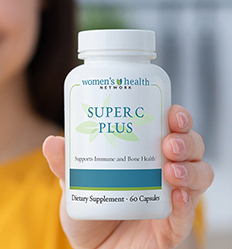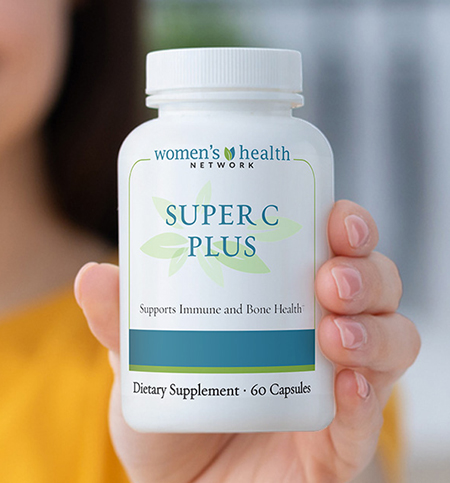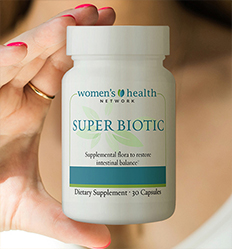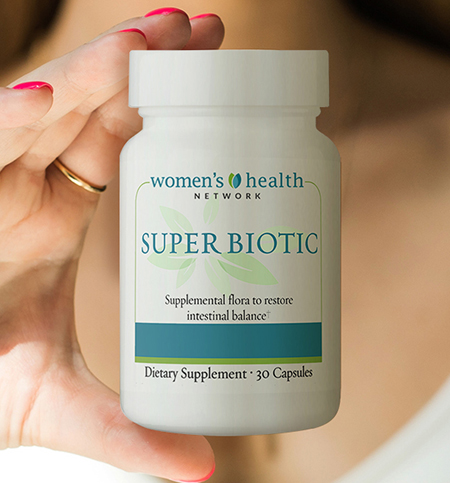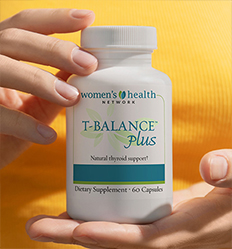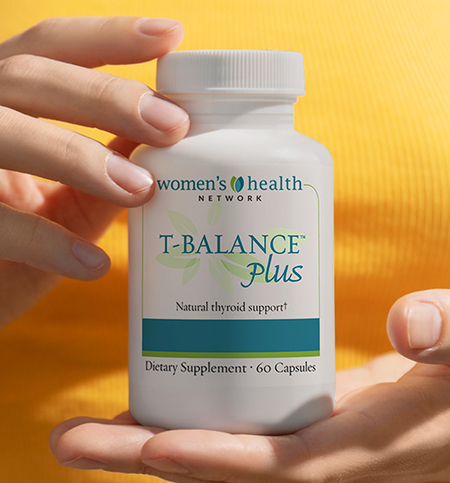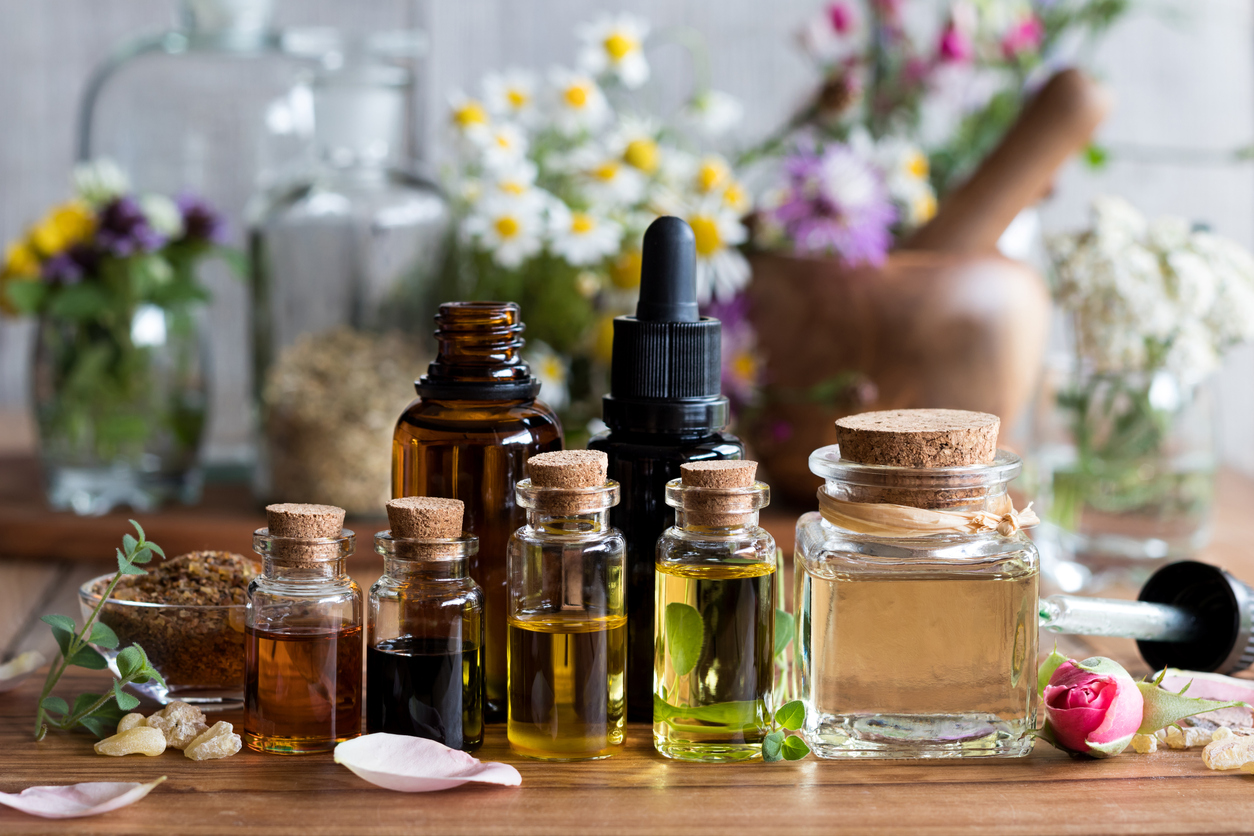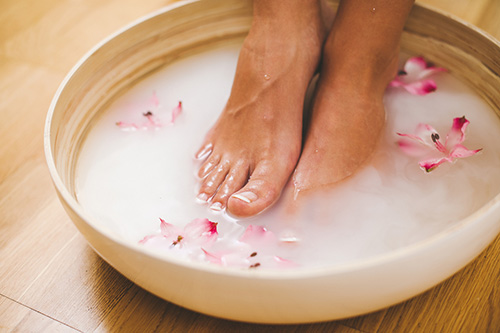By WHN Editors
Want glowing skin no matter what your age? Forget the pricey creams that promise a lot but underdeliver – and start nourishing your skin from the inside out. The secret to healthy and radiant skin as you age is keeping it fed with antioxidant vitamins and other skin-friendly nutritional compounds. There are no gimmicks here – just easy, simple protection from dryness, wrinkles and other common aging-related skin concerns.
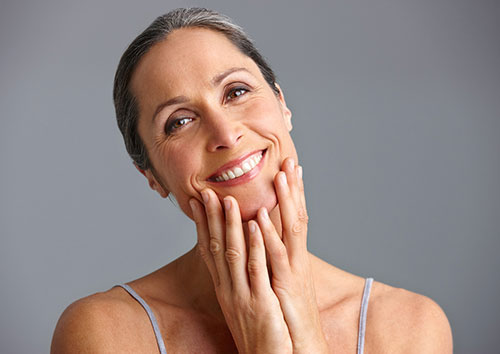
7 nutrients for stunning skin
Collagen
Collagen plays a pivotal role in the aging process of the skin due to its essential function in maintaining skin structure, elasticity, and firmness. As you age, the production of collagen in our body naturally declines, leading to a decrease in skin elasticity and the formation of wrinkles, fine lines, and sagging. Collagen provides the skin with its strength and resilience, acting as a scaffold that supports the epidermis and dermis layers. Additionally, collagen contributes to skin hydration and helps to maintain its smooth and supple appearance. Our advice: look for a high-quality Collage supplement with all five types of collagen for optimal support and effectiveness.
Bonus Tip: Supercharge collagen with the spice curcumin, which studies have shown helps to naturally boost collagen production. Curcumin also supports the production of elastin, the protein that provides for skin’s elasticity.
Curcumin can be added to chilis, soups and other spice-filled recipes. You can also drink it in soothing golden milk, or supplement with curcumin for targeted support.
When applied topically as a facial mask, curcumin helps soothe and calm the skin, reducing redness and irritation. Want to test this out? Try our easy face mask recipe that uses turmeric culinary spice as a base:
Skin Calming Turmeric Face Mask
Ingredients
- 1 tsp. turmeric powder
- 2 Tbsp. honey
- Milk or yogurt
Instructions
- Mix turmeric powder and honey until well incorporated. Add a small amount of milk or yogurt to create a paste.
- Apply paste to clean dry skin. Allow the mask to sit for 10 minutes, or until completely dry.
- Gently wash your face with warm water to remove the mask. Apply moisturizer as usual.
- Note: Turmeric can stain fabrics and surfaces, so keep this in mind when applying and removing the mask.
Omega-3 Fatty Acids
Omega-3s found in fish oil offer numerous benefits for skin health as you get older by helping to maintain moisture levels, reduce inflammation and strengthen the skin barrier.
Taking an Omega-3 supplement is an easy way to make sure you are getting enough essential fatty acids to help out your skin. Just be sure to take a quality omega-3 supplement that includes eicosapentaenoic acid (EPA). EPA offers special benefits to skin by regulating oil production and blocking enzymes that diminish collagen levels. Because it’s an antioxidant and anti-inflammatory agent, EPA also helps repair and protect damaged skin. Good dietary sources of EPA include oily fish like wild-caught salmon.
Probiotics
Some skin issues may actually start in the gut. Are you plagued with problems like eczema, rosacea or adult acne? Along the lining of the GI tract, the gut microbiome is the body’s mighty “second brain” that helps to regulate everything from immune response to mood. Probiotics, friendly “good” bacteria, maintain the health of the microbiome and reduce inflammation. Without enough probiotics, bad bacteria takes over, which can result in a host of ailments – including skin problems. Studies show that taking a probiotic can prevent or improve skin conditions including eczema, atopic dermatitis, acne and even UV-induced skin damage – which is helpful at any age. For superior gut flora support, try our Super Biotic formula.
Vitamin A
Vitamin A is a powerful antioxidant compound that is essential for maintaining healthy skin cells and promoting skin renewal as you age. Studies on antioxidant micronutrients, including beta-carotene, show that these compounds help to increase the skin’s defenses against UV radiation and help maintain the health and appearance of aging skin. To get more Vitamin A, boost your intake of fruits and vegetables rich in beta-carotene, the “pro-vitamin” precursor that is transformed into Vitamin A by the liver, according to the body’s needs. Foods richest in beta-carotene are yellow, orange and green leafy fruits and vegetables (such as carrots, spinach, lettuce, tomatoes, sweet potatoes, broccoli, cantaloupe and winter squash).
Topical Vitamin A (in a form called a retinoid or retinol) can be used to help to reduce fine lines and wrinkles. Additional benefits of some retinoids include fading age spots and softening rough patches of skin. To try it out, look for a non-synthetic Vitamin A cream or serum to use at night. Be sure the product has Vitamin A in its retinoid form so that it can reach your skin cells effectively.
Vitamin E
Vitamin E is a potent antioxidant that helps protect aging skin from sun damage and free radicals. It supports the skin’s natural moisture barrier, improves hydration and helps to reduce the formation of wrinkles. Vitamin E also assists in the healing process of damaged skin. Foods rich in Vitamin E include sunflower seeds and oil, nuts, spinach, broccoli, kiwi and mango. Also consider taking a Vitamin E supplement – alone or as part of a quality women’s multivitamin.
Special note: Vitamin E is naturally found in sebum, the oil produced by the body to act as the skin’s moisture barrier. As we age, sebum production slows. If you have dry or itchy skin, using Vitamin E as a topical agent (as an ingredient in a natural moisturizer) can help replace this lost barrier and soothe the skin.
Vitamin D
Vitamin D’s antioxidant qualities help to fight inflammation and free radical damage. The vitamin also plays a role in preventing DNA damage, supporting healthy skin cell turnover. One study found that when a Vitamin D deficiency occurs, skin burns faster when exposed to the sun. Sun exposure is one of the biggest external contributors to premature skin aging, so consider the protection of your skin one more reason to get enough Vitamin D.
Selenium
Selenium is a trace mineral that acts as an antioxidant, protecting the skin from oxidative stress and damage. It supports skin elasticity, reduces inflammation and contributes to a healthier scalp and hair.
Selenium is also a key mineral for thyroid support. Why is your thyroid important for your skin? When your thyroid is low, common symptoms of thyroid dysfunction include dry and dull skin, brittle fingernails, and brittle, thinning hair. Women in menopause are at greater risk for low thyroid, so if you notice any of these symptoms showing up in the mirror, it’s time to check in on the health of your thyroid. To restore thyroid health, T-Balance Plus, our natural thyroid support formula, contains selenium as one its active ingredients.
For a more in-depth look at holistic skin care, see our article Be radiant — tips for better skin, hair and nails. Be good to yourself and your skin. It won’t be long before you see — and feel — the changes!







